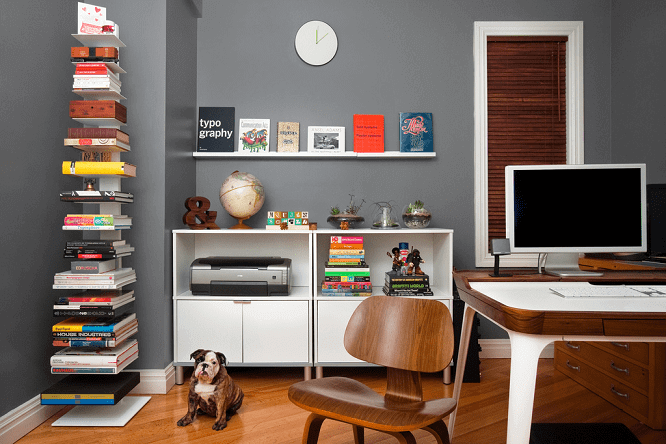We all recognize the benefits of a clean workspace.
There’s something about a tidy desk that helps us to focus better and improves our concentration. An organized workspace can also help us to feel less stressed –we won’t be overwhelmed by the clutter, and won’t have to search for things when we need them.
While you’re tidying up your office, though, you may want to give some thought to decluttering your mind as well.
The mind is a complex, yet fascinating place –full of thoughts, hopes, dreams, and memories. With so much happening upstairs though, it’s easy to see why sometimes, our thoughts turn into a jumbled mess. All too often, our minds start mentally jumping from thought to thought, without being able to focus wholeheartedly on the task at hand.
Unfortunately, though, decluttering the mind isn’t like clearing an inbox –a few keystrokes and everything’s organized. It requires a different approach to tackle clutter of the brain. The best strategy is to think of it as an ongoing process, like keeping your workspace clean, making a fresh sweep every so often is always the best strategy.
If you’re looking for more focus, clarity, and direction, decluttering your brain can help. Here are seven tips that you can use declutter your mind, and shift your focus.
1. Get Organized
First off, stop trying to remember everything. There’s nothing wrong with writing things down. Putting things down on paper allows you to clear your mind of all the clutter, and helps you to keep track of everything you have to do. There are all kinds of useful tools available that will help you to get organized. Consider an online calendar, or a day planner that helps you to map out your week. Getting organized will help to free up important brain space, and will allow you to see at a glance, exactly what’s happening that day. Instead of focusing on remembering things, you’ll be able to focus on getting things done.
2. Journal
Keeping a journal is a great way to release your thoughts. Don’t worry –your musings don’t need to be profound; the great thing about journaling is that it allows to unload the constant chatter that goes on inside your head. Write down your struggles, worries, and concerns. Empty it all out into your journal and free up your mind.
3. Embrace the Process of Elimination
Discover what’s important in your life. Focus on your goals and plans, and determine what type of a life you want to live; what kind of person you want to be. Then, try to be aware of thoughts that are taking up space in your mind, things that are causing you worry and stress, and aren’t helping you on towards your goals. Consider cutting back, or working to eliminate these unnecessary stressors.
4. Get More Sleep
Adequate sleep is essential for your well-being –both physically, and mentally. When you’re tired your mind works overtime, and your thoughts can easily become scattered. It’s harder to focus, and small problems can seem bigger than they are, leaving you overwhelmed and frustrated. While the ideal amount of sleep varies from person to person –some can function on six hours while others may need nine or more, it’s important is identify how much sleep you need in order to function at your absolute best.
5. Take Time to Breathe
Sometimes, clearing your mind can be as simple as making time to take a break. If you’re feeling distracted and overwhelmed, it’s time for a breather. Go outside, and take a walk. Walking in nature is a great way to destress, and refresh the mind.
6. Be Grateful
Practicing gratitude is a great way to help reset your mind, and leave you feeling better, and more at peace. While being grateful isn’t always easy, adopting a thankful mindset can offer great benefits in the long run, and can provide a shift in focus, allowing you to dwell on things that matter most, instead of feeling overwhelmed with worries and day-to-day stresses.
7. Consider Your Sources
Have you ever stopped to consider how information gets into your head? Slightly-biased news sites, TV shows, and social media all contribute to our thoughts, and influence what we think about; impacting the type of people that we’re trying to be. Be mindful of the information that goes in, and feed your mind with things that will help you to grow.
Remember: much like organizing your office is something that should happen daily so is the process of decluttering your mind. It’s not a one-time event, but rather a continual process of organization, elimination, and renewal. Look for ways to fill your mind with thoughts that will help, and edify you, and learn to let go of the ones that only serve as clutter.
How do you organize your mind?
